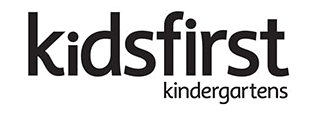
At Kidsfirst we take privacy very seriously. You can find a link to a printable version of our Privacy Policy here.
CANTERBURY WESTLAND KINDERGARTEN ASSOCIATION (Inc)
This privacy policy tells you how we use personal information collected while using Kidsfirst Platforms.
By using our Website and/or our Services, you acknowledge that you have carefully read this Privacy Policy and that you unreservedly agree with it. We reserve the right to regularly change the Privacy Policy as we deem fit. Such change will be communicated through the website.
1. Purpose
1.1. The External Privacy Policy applies to the Canterbury Westland Kindergarten Association Incorporated (“Kidsfirst”) website, any website or branded pages on third party platforms, such as, YouTube and Facebook and applications accessed or used through such websites or platforms which are operated by or on behalf of Kidsfirst (“Kidsfirst Platforms”)
1.2. Kidsfirst complies with the New Zealand Privacy Act 1993 (the Act) when dealing with personal information. Personal information is information about an identifiable individual (a natural person).
1.3. The Privacy Statement is in accordance with the Act’s 12 Privacy Principles. The Privacy Commissioners summary of these is attached to this policy.
2. Collection of Personal Information
2.1. Kidsfirst collect personal information about you when you provide that personal information to Kidsfirst. This includes via the Kidsfirst Platforms and any related service, through any registration or subscription process, through any contact with Kidsfirst (e.g. telephone call or email), or when you use Kidsfirst services.
2.2. Kidsfirst do not collect identifiable personal information about you if you only choose to browse the Kidsfirst Platforms.
3. Use of Personal Information
3.1. Kidsfirst will use your personal information to:
- to verify your identity;
- to provide services and products to you;
- to market our services and products to you, including contacting you electronically for example by email as a part of the newsletter subscription;
- to improve the services and products that Kidsfirst provide to you;
- to respond to communications from you, including a complaint;
- to conduct research and statistical analysis (on an anonymised basis);
- to protect and/or enforce our legal rights and interests, including defending any claim; and
- for any other purpose authorised by you or the Act.
4. Disclosing of Personal Information
4.1. Kidsfirst do not share information about you with any other organisations without your permission to do so unless it is necessary to provide you with a service you have requested.
4.2. Kidsfirst may disclose your personal information to:
- any business that supports our services and products, including any person that hosts or maintains any underlying IT system or data centre that Kidsfirst use to provide the website or other services and products;
- other third parties (for anonymised statistical information);
- a person who can require us to supply your personal information (e.g. a regulatory authority);
- any other person authorised by the Act or another law (e.g. a law enforcement agency); and
- Any other person authorised by you.
5. Security
Kidsfirst will take reasonable steps to keep your personal information safe from loss, unauthorised activity, or other misuse.
6. Access to Personal Information
6.1. Subject to certain grounds for refusal set out in the Act, you have the right to access your readily retrievable personal information that Kidsfirst hold and to request a correction to your personal information.
6.2. You may request Kidsfirst to delete the information stored about you and opt out of any further contact with Kidsfirst.
6.3. To protect your privacy, and the privacy of others, Kidsfirst may have to gain evidence of your identity before you are given access to information or authority to change it.
7. Privacy Officer
7.1. If you have any questions, concerns or want to exercise either of the above rights, email the Kidsfirst Privacy Officer at privacyofficer@kidsfirst.org.nz
7.2. Your email should provide evidence of who you are and set out the details of your request.
8. Internet Use
8.1. While Kidsfirst take reasonable steps to maintain secure internet connections, if you provide us with personal information over the internet, the provision of that information is at your own risk.
8.2. If you post your personal information on Kidsfirst Platforms, you acknowledge and agree that the information you post is publicly available.
8.3. If you follow a link on a Kidsfirst Platform to another site, the owner of that site will have its own privacy policy relating to your personal information. Kidsfirst suggest you review that site’s privacy policy before you provide personal information.
8.4. Kidsfirst use cookies to monitor your use of the website. See the Cookie Policy for more information.
9. Privacy Complaint
If you're not satisfied with our response to any privacy-related concern you may have, you can contact the Privacy Commissioner.
This can be done by telephoning the Commissioner’s enquiries team on 0800 803 909 or sending an email to enquiries@privacy.org.nz
Last updated on 29 November 2019
Summary of the Privacy Principles as provided by the Office of the Privacy Commissioner
For the full principles see https://privacy.org.nz/the-privacy-act-and-codes/privacy-principles/
Principle 1
- the collection is for a lawful purpose, connected with what the agency does, and
- it’s necessary to collect the information for that purpose.
Principle 2
Personal information must usually be collected from the person the information is about. But sometimes it is all right to collect information from other people instead - for instance, when:
- getting it from the person concerned would undermine the purpose of the collection
- it’s necessary so a public sector body can uphold or enforce the law
- the person concerned authorises collection from someone else.
Principle 3
When an agency collects personal information from the person the information is about, it has to take reasonable steps to make sure that person knows things like:
- why it’s being collected
- who will get the information
- whether the person has to give the information or whether this is voluntary
- what will happen if the information isn’t provided.
Sometimes there are good reasons for not letting a person know about the collection, for example, if it would undermine the purpose of the collection, or it’s just not possible to tell the person.
Principle 4
Personal information must not be collected by unlawful means or by means that are unfair or unreasonably intrusive in the circumstances.
Principle 5
It’s impossible to stop all mistakes. But agencies must ensure that there are reasonable safeguards in place to prevent loss, misuse or disclosure of personal information.
Principle 6
People usually have a right to ask for access to personal information that identifies them. However, sometimes, agencies can refuse to give access to information, for instance because giving the information would:
- endanger a person’s safety
- prevent detection and investigation of criminal offences
- involve an unwarranted breach of someone else’s privacy.
Principle 7
People have a right to ask the agency to correct information about themselves, if they think it is wrong. If the agency does not want to correct the information, it does not usually have to. But people can ask the agency to add their views about what the correct information is.
Principle 8
Before it uses or discloses personal information an agency must take reasonable steps to check that information is accurate, complete, relevant, up to date and not misleading.
Principle 9
An agency that holds personal information must not keep that information for longer than is necessary for the purposes for which the information may be lawfully used.
Principle 10
Agencies must use personal information for the same purpose for which they collected that information. Other uses are occasionally permitted (for example because this is necessary to enforce the law, or the use is directly related to the purpose for which the agency got the information).
Principle 11
Agencies can only disclose personal information in limited circumstances. One example is where another law requires them to disclose the information. Also, an agency can disclose information if it reasonably believes, for example, that
- disclosure is one of the purposes for which the agency got the information
- disclosure is necessary to uphold or enforce the law
- disclosure is necessary for court proceedings
- the person concerned authorised the disclosure
- the information is going to be used in a form that does not identify the person concerned.
Principle 12
Some agencies give people a “unique identifier” instead of using their name. Examples are a driver’s licence number, a student ID number, or an IRD number. An agency cannot use the unique identifier given to a person by another agency. People are not required to disclose their unique identifier unless this is one of the purposes for which the unique identifier was set up (or directly related to those purposes).
Fax: 03 338 1086 Email: betterbecause@kidsfirst.org.nz Phone: 03 338 1303 or 0800 4 KIDSFIRST (0800 454 373) Postal Details: Kidsfirst Kindergartens, PO Box 8089, Christchurch 8440 Information including that about fees, services and promotional activities were correct at the date of publication of news stories but may since have changed. Please check with us to ensure information is current. |












